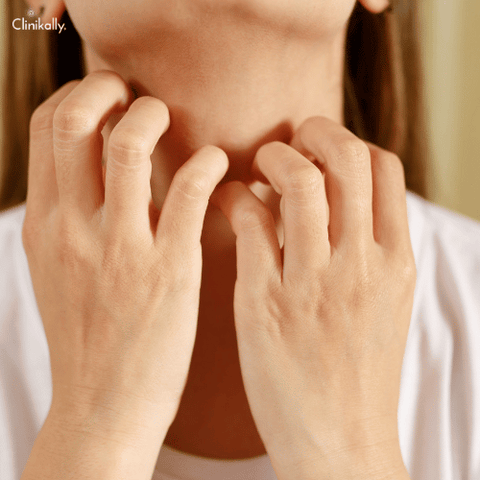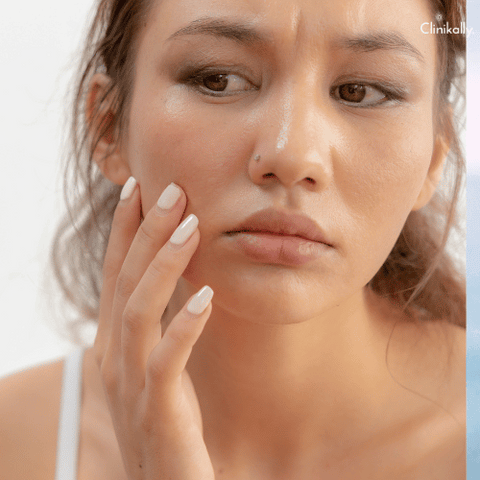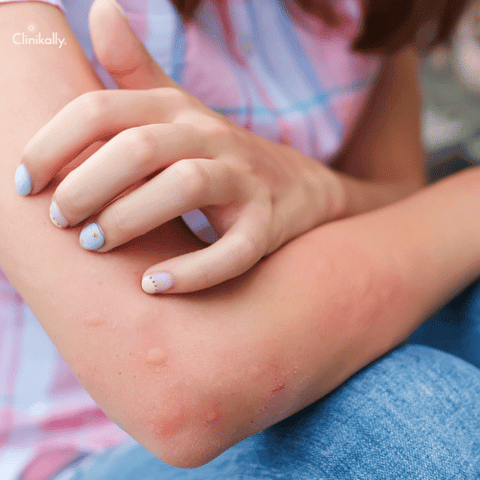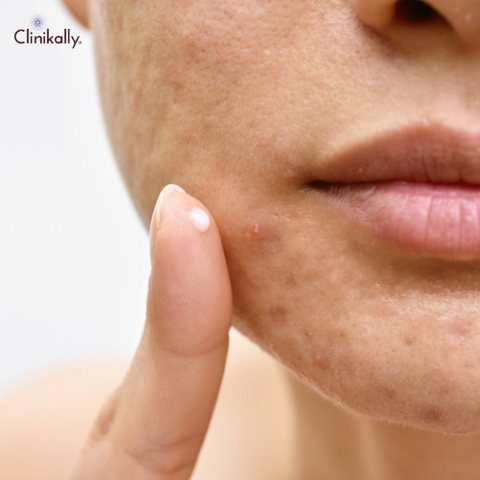In the ever-evolving landscape of the beauty industry, a renewed emphasis on natural and effective ingredients has captured the attention of skincare enthusiasts. Among the multitude of natural compounds that have gained prominence, Beta-Glucan has emerged as a powerful ally in nurturing skin health. But what sets this unassuming ingredient apart and grants it the ability to deliver remarkable results?
Beta-Glucan, derived from various sources such as oats, mushrooms, and yeast, possesses unique properties that make it a standout contender in the quest for vibrant and radiant skin. As a polysaccharide, Beta-Glucan exhibits exceptional moisturizing capabilities, allowing it to lock in hydration and promote a healthy moisture barrier. This not only provides immediate relief to dry and dehydrated skin but also works to prevent moisture loss, resulting in a plump and supple complexion.
Beyond its hydrating prowess, Beta-Glucan is renowned for its remarkable ability to promote skin regeneration and repair. By stimulating collagen synthesis and supporting cellular turnover, it aids in diminishing the appearance of fine lines, wrinkles, and skin imperfections. Additionally, its anti-inflammatory properties help soothe and calm irritated skin, making it a valuable asset for individuals with sensitive or reactive skin types.
Furthermore, Beta-Glucan showcases impressive antioxidant and immune-boosting capabilities, serving as a shield against environmental aggressors and oxidative stress. This protective function helps defend the skin against free radicals and UV damage, promoting long-term skin health and minimizing the signs of premature aging.
In this article, we delve deep into the efficacy of Beta-Glucan as a powerful ingredient in nurturing skin health. Through an exploration of its unique properties, scientific research, and clinical evidence, we aim to unravel the secrets behind its transformative effects. By understanding the mechanisms and benefits of Beta-Glucan, you will gain invaluable insights into how this natural compound can revolutionize your skincare routine, offering a pathway to healthier, more radiant skin.
Demystifying Beta-Glucan: The Secret Skin Care Ingredient

In the ever-evolving realm of skincare, where consumers are constantly searching for the next breakthrough ingredient, one substance has been gaining significant attention for its remarkable properties: beta-glucan. With its unique ability to enhance skin health and address various concerns, beta-glucan has emerged as a secret weapon in the pursuit of radiant and youthful skin. However, despite its growing popularity, there is still a lack of comprehensive understanding surrounding this powerful compound. In this section, we aim to demystify beta-glucan by unraveling its scientific intricacies, exploring its numerous benefits, and shedding light on its potential as a transformative skincare ingredient. By the end, you will have a deeper understanding of how beta-glucan can revolutionize your skincare routine and unlock the secrets to a radiant complexion.
What is Beta-Glucan?
In the realm of skincare, there are numerous ingredients that claim to deliver impressive results. One such ingredient that has gained considerable attention is Beta-Glucan. But what exactly is Beta-Glucan, and how does it work its magic on the skin?
Beta-Glucan is a polysaccharide, a type of complex carbohydrate, that is naturally found in various sources such as oats, mushrooms, yeast, and certain grains. It is renowned for its unique molecular structure, characterized by a chain of glucose molecules linked together in a specific configuration. This distinct structure gives Beta-Glucan its remarkable properties and makes it an exceptional ally for skin health.
One of the key features of Beta-Glucan is its ability to deeply penetrate the skin. Due to its small molecular size, it can easily permeate the outermost layer of the skin, known as the stratum corneum. Once absorbed, Beta-Glucan interacts with the skin cells, stimulating various biological processes that contribute to its wide-ranging benefits.
One of the primary mechanisms of action of Beta-Glucan is its interaction with immune cells present in the skin. It binds to specific receptors on these cells, activating them and triggering a cascade of immune responses. This activation helps enhance the skin's defense mechanisms, bolstering its ability to combat environmental stressors, pathogens, and inflammation.
Furthermore, Beta-Glucan is known to promote collagen synthesis, which plays a vital role in maintaining the skin's structural integrity. Collagen is a protein responsible for the skin's firmness, elasticity, and overall youthfulness. By stimulating collagen production, Beta-Glucan helps improve skin texture, reduce the appearance of fine lines and wrinkles, and promote a more youthful complexion.
In addition to its immunomodulatory and collagen-boosting effects, Beta-Glucan is recognized for its exceptional moisturizing properties. It has the ability to attract and retain moisture in the skin, creating a protective barrier that prevents dehydration and helps maintain optimal hydration levels. This not only results in a plumper and more supple complexion but also contributes to the skin's overall health and resilience.
Origin and Extraction of Beta-Glucan
The origin and extraction process of Beta-Glucan play crucial roles in ensuring the purity and effectiveness of this remarkable skincare ingredient. Understanding where Beta-Glucan comes from and how it is extracted is essential to appreciate its journey from source to product.
Beta-Glucan can be derived from various natural sources, with the most common ones being oats, mushrooms, yeast, and certain grains. Each source offers its unique composition and variations in Beta-Glucan structure, which can impact its properties and efficacy.
Oats are a popular source of Beta-Glucan, particularly the soluble Beta-Glucan found in the bran and endosperm layers of oat kernels. These parts of the oat grain contain a high concentration of Beta-Glucan, making them valuable for extraction. Mushrooms, such as Shiitake and Reishi, also contain Beta-Glucan in their cell walls, contributing to their medicinal and skincare applications. Yeast, commonly Saccharomyces cerevisiae, is another significant source of Beta-Glucan, often utilized in cosmetic and skincare formulations. Lastly, certain grains like barley and rye contain Beta-Glucan, albeit in different amounts and structures.
The extraction process of Beta-Glucan involves carefully isolating the compound from its natural source while ensuring its integrity and purity. Extraction methods may vary depending on the source, but they generally involve several steps to obtain a concentrated and standardized Beta-Glucan extract.
For oats, the extraction typically involves milling the grains to separate the bran and endosperm layers. The Beta-Glucan-rich components are then isolated through a combination of sieving, separation, and enzymatic or chemical treatments. The resulting extract is purified to remove impurities, yielding a concentrated Beta-Glucan solution suitable for skincare formulations.
In the case of mushrooms, the extraction process involves breaking down the mushroom cell walls to release the Beta-Glucan. This can be achieved through various techniques such as hot water extraction, enzymatic digestion, or solvent extraction. The extracted Beta-Glucan is then further purified to obtain a potent and standardized form.
Yeast-derived Beta-Glucan extraction typically involves cultivating yeast strains and allowing them to produce Beta-Glucan in their cell walls. After the fermentation process, the yeast cells are harvested and subjected to cell disruption techniques to release the Beta-Glucan. The extracted Beta-Glucan undergoes purification steps to remove unwanted components and obtain a high-quality extract.
Once the Beta-Glucan extract is obtained, it can be incorporated into skincare products such as serums, creams, and masks, harnessing its beneficial properties for the skin. Beta-Glucan can be derived from various natural sources, including oats, mushrooms, yeast, and certain grains. The extraction process involves carefully isolating the Beta-Glucan from its source, often through a series of steps that include milling, separation, enzymatic treatments, and purification. Understanding the origin and extraction of Beta-Glucan allows for a deeper appreciation of its purity, efficacy, and potential when incorporated into skincare formulations.
Beta-Glucan and Its Multifaceted Benefits for Skin Health

In the pursuit of optimal skin health and radiance, individuals are constantly seeking innovative solutions that address a multitude of concerns. Among the plethora of skincare ingredients available, beta-glucan has emerged as a highly promising compound, revered for its multifaceted benefits. Renowned for its remarkable properties, beta-glucan has captured the attention of both scientists and skincare enthusiasts alike, owing to its profound impact on various aspects of skin health. In this section, we delve into the intricacies of beta-glucan, unveiling its diverse range of benefits and shedding light on its transformative potential for achieving vibrant and youthful skin. Through a comprehensive exploration of its mechanisms and applications, you will gain valuable insights into how beta-glucan can revolutionize your skincare regimen and unlock the secrets to a healthier, more radiant complexion.
Beta-Glucan as a Potent Antioxidant and Anti-inflammatory Agent
Beta-Glucan is rich in antioxidants that help neutralize harmful free radicals, the primary cause of premature skin aging. This potent antioxidant property makes it invaluable in protecting the skin from environmental stressors like pollution and UV radiation. Its anti-inflammatory benefits also soothe the skin, reducing redness and irritation, making it an ideal ingredient for sensitive skin types.
Role of Beta-Glucan in Hydrating the Skin
Hydration is vital to maintaining healthy, glowing skin. Beta-Glucan is a powerful humectant that attracts water to the skin, helping maintain skin hydration. It forms a fine film on your skin, locking in moisture without leaving a greasy residue. This enhances the skin's natural moisture barrier, preventing transepidermal water loss and keeping your skin hydrated throughout the day.
Beta-Glucan for Anti-Aging: Enhancing Elasticity and Firmness
Beta-Glucan stimulates the production of collagen, a protein responsible for maintaining skin's firmness and elasticity. By promoting collagen synthesis, Beta-Glucan helps to reduce the appearance of fine lines and wrinkles, ultimately leading to a smoother, firmer, and younger-looking complexion.
Healing and Protecting Skin with Beta-Glucan

When it comes to skincare, achieving a healthy and resilient complexion is a top priority for many individuals. In this pursuit, the power of beta-glucan has emerged as a notable ally, renowned for its remarkable ability to heal and protect the skin. With its unique molecular structure and exceptional properties, beta-glucan has garnered significant attention in the realm of skincare. This section aims to explore the profound healing and protective effects of beta-glucan on the skin, shedding light on its therapeutic potential for a range of skin conditions and its role in fortifying the skin's natural defences. By delving into the scientific intricacies and clinical evidence surrounding beta-glucan, you will gain a deeper understanding of how this extraordinary ingredient can revolutionize your skincare routine, promoting healthier, more resilient skin.
Beta-Glucan in Wound Healing and Skin Repair
When it comes to wound healing and skin repair, Beta-Glucan has garnered considerable attention for its remarkable properties and therapeutic potential. This section explores the role of Beta-Glucan in promoting wound healing, supporting skin repair processes, and its applications in various skincare formulations.
Beta-Glucan has demonstrated significant efficacy in wound healing due to its unique ability to activate immune cells and stimulate the production of growth factors that facilitate tissue regeneration. Upon contact with damaged skin, Beta-Glucan interacts with immune cells, such as macrophages, neutrophils, and fibroblasts, initiating a cascade of events that promote the healing process.
One of the key mechanisms by which Beta-Glucan aids in wound healing is by promoting the migration of immune cells to the wound site. This enhanced cellular recruitment helps clear away debris and harmful microorganisms, creating an optimal environment for healing to occur. Moreover, Beta-Glucan has been shown to enhance the production of collagen, a vital protein that forms the structural framework of the skin. Increased collagen synthesis aids in the formation of new tissue, strengthening the wound and reducing the risk of scarring.
Additionally, Beta-Glucan's anti-inflammatory properties play a crucial role in the wound healing process. By modulating the immune response, it helps minimize excessive inflammation, which can impede healing. This anti-inflammatory action helps reduce swelling, redness, and discomfort, promoting a faster and more efficient healing process.
Furthermore, Beta-Glucan's moisturizing properties contribute to wound healing and skin repair. It aids in maintaining proper hydration levels, preventing excessive dryness, and creating an environment conducive to healing. Moisturized skin is better able to support the repair processes, resulting in improved wound closure and the formation of healthy new tissue.
Given its remarkable effects on wound healing and skin repair, Beta-Glucan has found applications in various skincare formulations. It is incorporated into products such as healing creams, ointments, and serums, designed to support the recovery of damaged skin, soothe irritations, and accelerate the healing process.
Protecting Skin from UV Damage with Beta-Glucan
Beta-Glucan protects the skin from the harmful effects of UV radiation. It does so by bolstering the skin's antioxidant defences, neutralizing the damaging free radicals generated by UV exposure. Moreover, it's also shown to help repair DNA damage from sun exposure, further aiding in skin protection.
Beta-Glucan for Sensitive and Irritated Skin
Beta-Glucan’s anti-inflammatory properties can also soothe sensitive skin. It can alleviate skin irritations, like redness and itchiness, often associated with conditions like eczema or rosacea. Furthermore, it helps reinforce the skin's protective barrier, enhancing its resistance to environmental irritants.
https://www.clinikally.com/blogs/news/the-long-term-effects-of-sun-damage-on-your-skinBeta-Glucan into Your Skin Care Regimen

In the ever-evolving landscape of skincare, incorporating effective and proven ingredients into our daily routines is paramount to achieving optimal skin health. One such ingredient that has garnered significant attention is beta-glucan, celebrated for its exceptional properties and transformative effects on the skin. As more individuals seek to harness the benefits of this remarkable compound, understanding how to seamlessly integrate beta-glucan into a personalized skincare regimen becomes essential. In this section, we delve into the practical aspects of incorporating beta-glucan into your skincare routine, exploring its compatibility with different products, its optimal usage methods, and the potential synergies it offers with other skincare ingredients. By the end, you will be equipped with the knowledge and insights necessary to unlock the full potential of beta-glucan, allowing you to elevate your skincare regimen and achieve the radiant, healthy complexion you desire.
How to Effectively Use Beta-Glucan for Skin Health
The versatility of Beta-Glucan makes it a fantastic addition to any skincare routine. Incorporating products containing this potent ingredient can provide significant benefits, from hydration and anti-aging to wound healing and protection against environmental stressors. For maximum benefits, it's recommended to use Beta-Glucan-based products twice daily, morning and night.
Beta-Glucan in Everyday Skin Care Products
Beta-Glucan is found in a wide range of skincare products including cleansers, toners, serums, moisturizers, and even sunscreens. The key is to choose a product based on your skin type and concern. For instance, if your skin is dry, a Beta-Glucan-enriched moisturizer could provide intense hydration. On the other hand, if aging is your primary concern, a serum with a high concentration of Beta-Glucan could help boost collagen production and reduce wrinkles.
Tips for Choosing Beta-Glucan Skin Care Products
When selecting Beta-Glucan skincare products, look for those that list Beta-Glucan high in the ingredient list, which indicates a higher concentration. Additionally, opt for products that combine Beta-Glucan with other beneficial ingredients, like antioxidants and other skin-soothing agents, for a synergistic effect.
Safety and Considerations when Using Beta-Glucan for Skin Care
In conclusion, Beta-Glucan has emerged as a remarkable and versatile ingredient in the realm of skincare, offering a multitude of benefits and considerations for its safe and effective usage. Its proven efficacy in promoting skin health, hydration, anti-aging effects, wound healing, and environmental protection make it a valuable addition to any skincare routine.
While Beta-Glucan is generally safe for all skin types, it is prudent to conduct a patch test prior to widespread use to rule out any potential allergic reactions. Additionally, it is important to remember that Beta-Glucan is not a standalone solution but rather an integral part of a comprehensive skincare regimen. Combining Beta-Glucan with other key ingredients and adopting a healthy lifestyle, including proper nutrition, hydration, and sun protection, can synergistically enhance its benefits and promote overall skin health.
As the demand for effective and natural skincare solutions continues to grow, Beta-Glucan has solidified its place as a trusted and sought-after ingredient. Its proven effectiveness, compatibility with various skin types, and multitude of benefits make it a compelling choice for individuals seeking radiant, healthy skin.
Incorporating Beta-Glucan into your skincare routine can unlock its transformative potential, helping you achieve a nourished, youthful complexion. By understanding the safety considerations and harnessing the power of this extraordinary ingredient, you can embark on a skincare journey that embraces the science and wonders of Beta-Glucan.









































